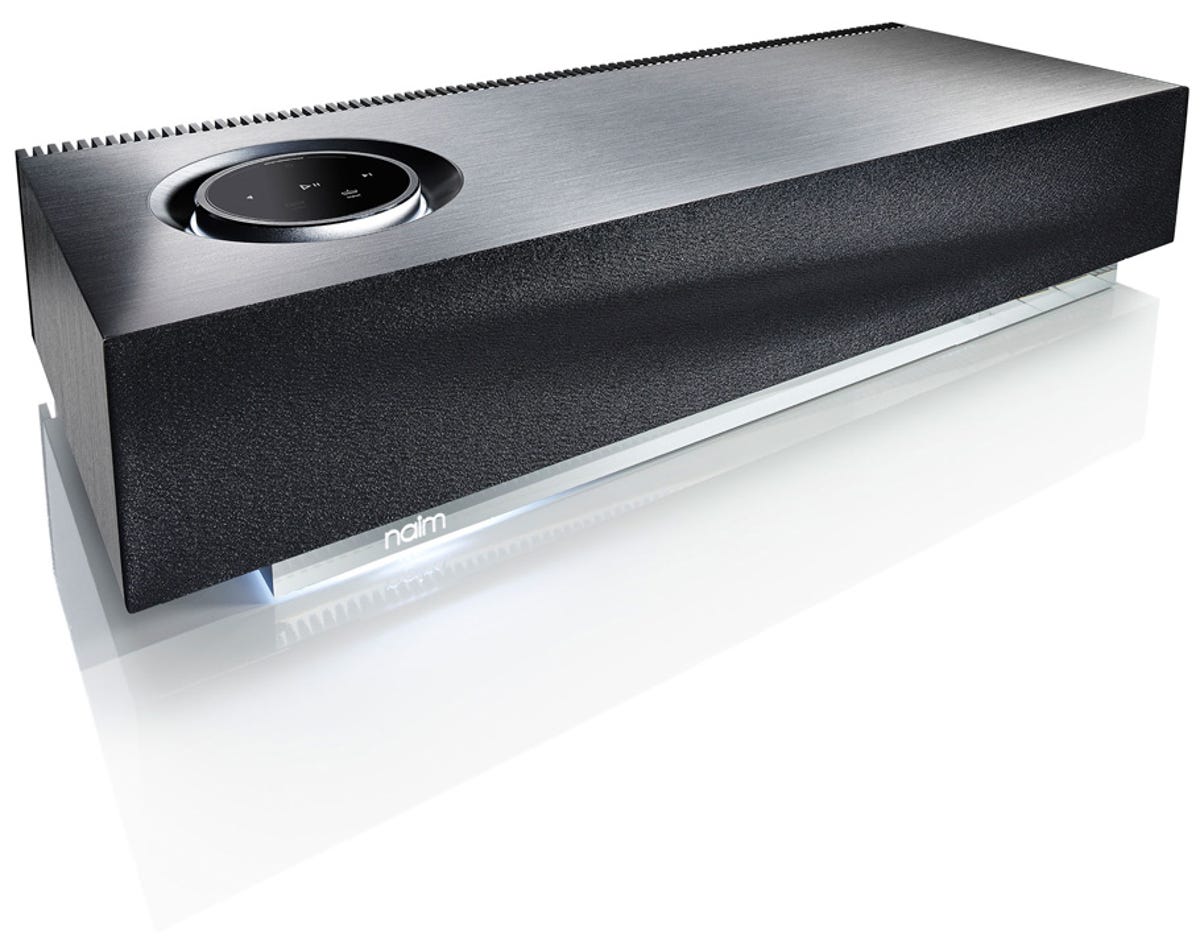
Naim
First things first: the Naim Mu-so is a brilliant work of industrial design. Build quality is solid, the massive finned heat sinks on the speaker’s rear end look awfully impressive, and the silky-smooth volume control inspires confidence. Mu-So is the real deal — it looks and feels like a high-end component. What about the sound? That’s a different story.
On the plus side Mu-so makes bass, no doubt about that — it’s pleasantly thick and warm. As for bass definition, Mu-so is only so-so. Midrange and treble are very present, although a little too bright for me. As for stereo separation, there’s some, and that’s the best way to describe it. Mu-so can play fairly loud, but sounds best played at a more moderate volume.
No doubt, the Mu-so is good for what it is: a luxury wireless speaker. But for what it costs –$ 1,499/£895 — its sound quality is downright lame. For example, for a lot less cash, a pair of brand-new Klipsch Reference Premiere RP160M bookshelf speakers and an NAD C316BEE integrated amp would sound in every way better: they’re more dynamic, produce a legitimate stereo soundstage, and they have deeper, tighter, more powerful bass, more natural midrange, and clearer highs. True, the RP-160Ms are bigger, wired speakers, but if you care about getting the best possible sound for your money, never buy a wireless speaker. Oh, and if you ever throw parties, the RP-160Ms would crush the Mu-so; we’ll have a full CNET review of the Klipsch speaker very soon.
Wireless is all about convenience, and if that’s what you’re after, buy the best wireless speaker you can afford. As single-speaker wireless models go, Mu-so is a worthy option, but if you can handle a pair of wireless speakers, check out Dynaudio’s superb Xeo speakers. They are easily the best wireless speakers I’ve heard to date.


Klipsch
Back to Mu-so: my local Naim dealers tell me their customers love Mu-so, so much so that once they buy one, some come back and buy one or two more to put in other rooms in their homes. That says a lot about Mu-so — it delivers what customers want.
The 24.7-inch (628mm) wide stereo speaker houses six drivers (two dome tweeters, two midrange and two bass drivers), and six power amplifier channels deliver a total of 450 watts. Connectivity options include 3.5mm analog audio, Toslink optical digital, USB, AirPlay, UPnP streaming, Spotify Connect, Bluetooth aptX, iRadio, iOS and Android app control and multiroom capability. I used the optical input for all of my listening tests; Mu-so handles everything from MP3 to high-res 192/24-bit files.
The standard grille is black, but Naim will happily sell you a Deep Blue, Vibrant Red or Burnt Orange grille.
So while I admire the Naim Mu-so’s design and ease of use, the sound didn’t satisfy, but that’s because I regularly listen to two-channel audio systems. Perhaps the best way to enjoy Mu-so is to never compare it to a wired stereo audio system.




